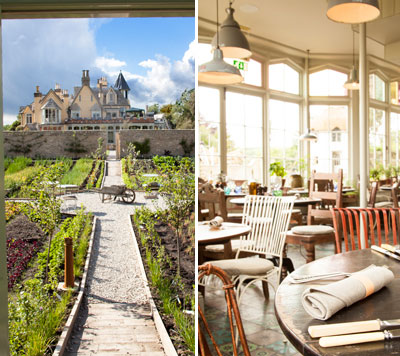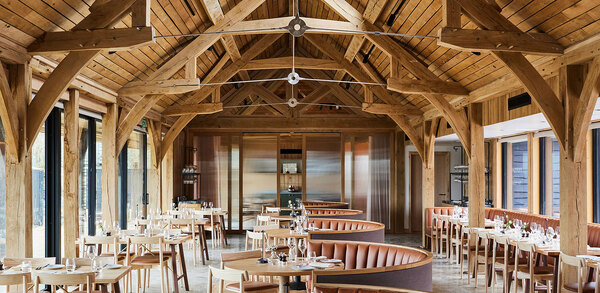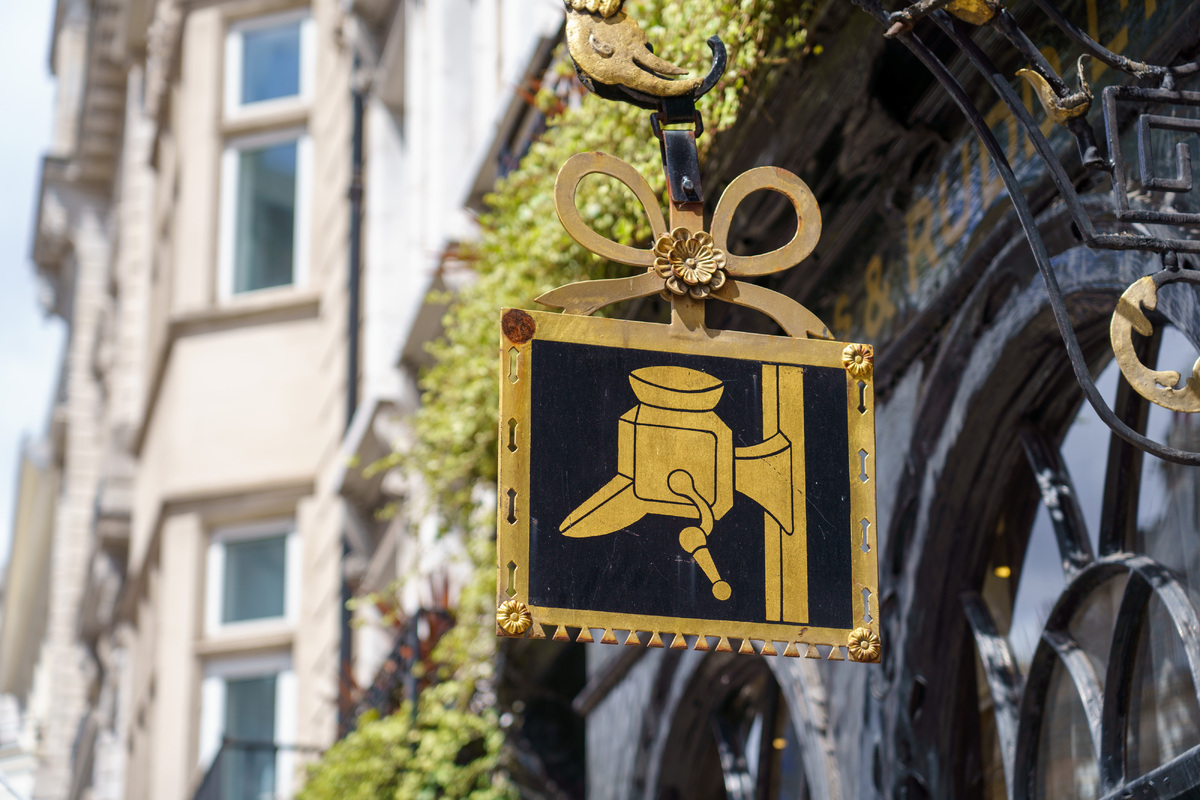Business profile: The Pig hotels
In just three years Robin Hutson has established the Pig, his collection of shabby chic country house hotels, as one of the most successful in the UK. He explains to Janet Harmer how he tapped into the zeitgeist
Nine years ago, Robin Hutson came close to buying what was then the Manor House hotel, a grand country house with breathtaking views of Old Harry
Rocks and Studland Bay in Dorset. But the deal never came off.
That was in 2005, a year after the sale of Hotel du Vin, the groundbreaking mid-market boutique brand he launched in 1994 with Gerard Basset and went on to grow to six hotels. Hutson opened the first Pig hotel just outside Brockenhurst in the New Forest in 2011 and it quickly became apparent that he had, for the second time, created a hotel people were eager to go to.
"As we considered expanding the Pig brand, my thoughts returned to the Manor House," explains Hutson. "We went back, liked what we saw and decided to approach the owners again."
Andrew and Karen Pukis were not looking to sell, but with a 40-year lease on a freehold property that belonged to the National Trust and was in need of investment, there was an opportunity to negotiate. As a result, Home Grown Hotels, the parent company of the Pig, acquired a renegotiated 80-year lease on the Manor House for £3m in July 2012.
Plans were drawn up to reconfigure the interior, add an extension and build two thatched follies in the grounds, increasing the number of bedrooms from 21 to 23. But the process was lengthy, primarily due to the involvement of the National Trust.
"The National Trust was very supportive of what we were trying to do, but every aspect of the development had to go through them, which created a layer of bureaucracy," he says.
Meanwhile, Home Grown Hotels opened the Pig in the Wall, a 12-bedroom bed and breakfast in Southampton, in September 2012, and acquired Hunstrete House from Andrew Davis, the founder of Von Essen, in May 2013, for £5m. Hunstrete required refurbishment, costing £4.5m, but that wasn't as extensive as
the Manor House hotel, which cost £6.5m.
âThree months between the opening of two hotels was extremely ambitious for us,â says Hutson. âThereâs just myself, marketing director David Elton and sales, marketing and brand manager Jen Weatherley, along with the accounts and central reservations teams at head office.â
Judy Hutson, Robinâs wife, oversees the design of each hotel (see panel), and the two of them source all the furniture, artwork, cutlery and china. âWe put our hands, hearts and souls into each hotel,â he says. âOur lives are completely dominated by the project in the run-up to each opening.â
Â
Growing the brand
Hutson says the plan to create a Pig brand of hotels emerged organically as a result of the success of the original hotel in the New Forest. The focus at the time was simply to breathe new life into what had been the Whitley Ridge hotel by creating a rustic, laid-back country hotel, at a reasonable price point, and with a kitchen garden at its heart.
The hotel had originally been owned by Lime Wood Group, the company founded by multi-millionaire Jim Ratcliffe of the chemical company Ineos as a launchpad for the nearby Lime Wood country house hotel, which opened under Hutsonâs guidance in 2009.
Ownership of the Pig was later transferred to Home Grown Hotels, which enjoys Ratcliffeâs input as he owns 50% of the business, alongside the remaining shares, which belong to Hutson (26%) and 24% split between Elton, finance director Mike Rice and one of the original backers of Hotel du Vin, Peter Chittick.
Home Grown Hotels sits within the Lime Wood Group, which incorporates Lime Wood itself and Le Portetta in Courchevel, France.
âWe benefit hugely from Jimâs involvement, as his backing allows us to move quickly when we see a property we want,â says Hutson.
âI think it would have been arrogant to say from the outset that we intended to roll out 10 Pigs. But we realised we had created something that people were interested in, which of course gave us confidence to do more.â
Â
Triple success
Hutson highlights three aspects of the brand that have been incredibly successful and allowed the business to flourish: the kitchen garden, the name and the price point.
âThe kitchen garden concept has worked brilliantly,â he says. âWe were not the first to have one, by any means, but we were possibly the first to use it to inform everything we do in the hotel and to use it at the forefront of our marketing material. It has an honest philosophy and great credibility. It revolves around a very simple message of only using produce from the kitchen garden and within a 25-mile radius. Guests like it because it is straightforward â" it hasnât come out of a corporate marketing book â" and is something they can see, feel, touch and taste.â
The Pig name has also cleverly helped to drive the brandâs success. âIt has a pubby feel â" which was intentional â" and hence has broken down the stuffy country house image and encouraged people to come up the drive,â says Hutson. âPassersby are not scared of going into a pub, but they may be put off walking unannounced into a country house hotel, where you might feel you have to be correctly dressed and the kids wonât be welcome.â
The room rates and menu prices have also been important, with 95% of bedrooms across the four properties selling for below £200. In the restaurants, the starters are from £5, the mains are from £14 and the desserts are £7.
Fully booked
Launching and growing the brand, however, hasnât been all plain sailing. The produce was initially sourced from within 15 miles, which proved too restrictive.
The chief challenge, though, was one that many a hotelier would only be too happy to deal with.âWe didnât anticipate the level of interest when we first opened,â explains Hutson. âWe werenât prepared for the non-stop volume and being full every day â" both in the rooms and the restaurant at lunch and dinner. It didnât matter whether it was summer or winter, the middle of the week or the weekend.
âAs a result, we were understaffed when we opened in the New Forest. It was a big lesson, and so by the time we came to Bath and the Beach, we had larger teams. In fact, we overstaffed for the Beach â" with nearly 90 people â" as there are generally always some casualties following an opening. We expect the final
team to settle at around 75 people.â
Getting the staffing right has been the key challenge. As well as focusing on people with a cheery disposition and a passion for service, securing the numbers is critical. âThe hardest part of growing a brand is going from the first or the second hotel to numbers two, three and four,â says Hutson.âWith just one hotel, there
is not much infrastructure. We like to promote staff from within, but that is difficult when there are only one or two properties. At the beginning, you have to split the team in half at the first hotel to staff the second one. By the time you get to the eighth hotel, it gets easier â" by then every new hotel means just a handful of staff move in from all the others.â
The expansion of the Pig has, of course, created increasing opportunities for managerial roles across the brand, a situation that the business has met head-on with the introduction of the Budding Entrepreneurs scheme. Different from a traditional managerial scheme, it is intended to provide access to the thought process that goes on behind developing and growing the business.
The 20 young people on the scheme work across different departments in the brand and move between the four properties and its sister hotels Lime Wood and Le Portetta. âWe are completely open with our budding entrepreneurs regarding the facts and figures and Iâm very happy for anyone to come along to a meeting with my bank manager,â says Hutson. âThe scheme enables us to hang on to some of our best young people for longer.â
Making a name
Business to the Pig is driven directly through the brandâs own website or by phone, so there is no need for third-party booking agents.
Hutson has a good relationship with the press and will readily talk to the war chest of contacts he has built up over the years. âWe have always tried to be open and fair to the press and be willing to talk to them at any time, not just when we need their support,â he says.
The excitement surrounding the opening of the Pig on the Beach was such that 1,100 room nights were booked in 24 hours. Occupancy is set to reach 99% during July and August, with weekends fully booked until well into 2015. The Pig in the Forest runs at 93% occupancy, 12 months of the year, and serves an average of 165 covers a day.
As to the future, Hutson says he and the team need to digest what they have. âWe have to be super-careful we donât compromise four fantastic sites. Anything else must be equivalent. When we are ready, we shall probably look east or towards Oxford. It would be good to do something by the side of a river, or even in London with a kitchen garden on the roof.â
Sample dishes from the Pig on the Beach
⢠Isle of Wight tomato and Woolsery Snowdrop salad, garden pea tops and blackberry dressing (£6/£12)
⢠ Crispy Dorset oysters served in the shell, pickled cucumber and black garlic mayonnaise (£8.50)
⢠ Charred Poole Bay mackerel, confit beetroot and pickled rock samphire (£7/£14)
⢠ Slow-cooked Samwayâs pork belly, Isle of Wight tomatoes and garden onion tops (£16)
⢠ Wild elderflower and English white wine jelly, syllabub, oat crumble and elderflower sorbet (£7)
⢠ New Forest strawberry and buttermilk blancmange, garden thyme shortbread (£7)
The design âAs a result, we were understaffed when we opened in the New Forest. It was a big lesson, and so by the time we came to Bath and the Beach, we had larger teams. In fact, we overstaffed for the Beach â" with nearly 90 people â" as there are generally always some casualties following an opening. We expect the final
team to settle at around 75 people.â
Getting the staffing right has been the key challenge. As well as focusing on people with a cheery disposition and a passion for service, securing the numbers is critical. âThe hardest part of growing a brand is going from the first or the second hotel to numbers two, three and four,â says Hutson.âWith just one hotel, there
is not much infrastructure. We like to promote staff from within, but that is difficult when there are only one or two properties. At the beginning, you have to split the team in half at the first hotel to staff the second one. By the time you get to the eighth hotel, it gets easier â" by then every new hotel means just a handful of staff move in from all the others.â
The expansion of the Pig has, of course, created increasing opportunities for managerial roles across the brand, a situation that the business has met head-on with the introduction of the Budding Entrepreneurs scheme. Different from a traditional managerial scheme, it is intended to provide access to the thought process that goes on behind developing and growing the business.
The 20 young people on the scheme work across different departments in the brand and move between the four properties and its sister hotels Lime Wood and Le Portetta.
âWe are completely open with our budding entrepreneurs regarding the facts and figures and Iâm very happy for anyone to come along to a meeting with my bank manager,â says Hutson. âThe scheme enables us to hang on to some of our best young people for longer.â
Quirky touches The Pig may be a brand, but there is no cookie-cutter approach. Each of the Pig hotels has its own identity, but they are all linked by the core value of a kitchen garden. The original Pig is regarded as a restaurant with rooms in the midst of the New Forest; the Pig in the Wall is lodged into the 14th century medieval walls of Southampton; the Pig near Bath is set within the grandest property of them all â" a honey-coloured Georgian property among the rolling Mendip Hills;
but the Pig on the Beach is the most individual. Built in 1825, itâs a crossbetween Hogwarts and a fairytale gingerbread house, with rambling staircases, attic bedrooms and turrets.
In Bath, the bedrooms include some that are set in hideaway sheds in the kitchen garden, while the Beach has two that are in newly built double-storey
thatched dovecotes. There are also two adjoining shepherd huts with a double bed and a log burner in one and a freestanding bath in the other.
Parties at the Beach can be held in an outbuilding called the Roundhouse, where simple flatbreads and fish are cooked on a wood fire and served to guests to share, along with ice-cream made from the gardenâs produce and served from a âMr Piggyâ cart. Spa treatments are provided in potting sheds surrounded with
gardening memorabilia in the New Forest and Bath and in sheep huts at the Beach.
âWe like to be idiosyncratic,â says Hutson. âThe fact that the kitchen is not next to the restaurant at the Beach â" meaning staff have to carry dishes via reception â" adds an energy to the place.â
The Pigs
Owner Home Grown Hotels
Chairman Robin Hutson
Marketing director David Elton
Chef-director James Golding
Total staff 250
The Pig in the Forest
Where Brockenhurst, Hampshire
Bedrooms 26
Hotel director Jorge Gertrudes
Head chef Dan Gover
Head gardener Alex Coutts
The Pig in the Wall
Where Southampton
Bedrooms 12
Hotel manager Rachel Brazier
Chefs de partie Sam Bonner and Chris Elson
The Pig near Bath
Where Pensford, Somerset
Bedrooms 29
Hotel director Tom Ross
Head chef Kamil Osaka
Head gardener Ollie Hutson
The Pig on the Beach
Where Studland, Dorset
Bedrooms 23
Hotel director Lora Strizic
Head chef Andy Wright
Head gardener Jo Macina
Â



















